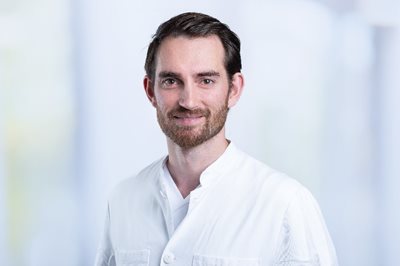16th European Multi-disciplinary Congress on Urological Cancers
7-10 November 2024, Lisbon, Portugal
Jointly organised by the European Association of Urology (EAU), European Society for Medical Oncology, and ESTRO
CONGRESS REPORT
The European Multi-disciplinary Congress on Urological Cancers (EMUC) 2024 took place in sunny, stunning Lisbon, and again brought together experts from urology, radiation oncology, nuclear medicine, radiology, oncology and pathology. State-of-the-art diagnostics and treatments were elucidated in multi-disciplinary and interactive sessions.
I had the pleasure of attending EMUC 2024 as a representative of young ESTRO on the scientific committee. It was a special experience to look behind the scenes at the organisation of such a great congress and to get in touch with European opinion leaders. We created a strong programme that balanced updates on current best practices and new treatment-defining clinical trials, which involved controversies regarding prostate, urothelial, kidney and penile cancers. Thus, EMUC 2024 offered high value not only for experts, but also for young physicians and researchers to shape and improve their local practice.
One of the congress’s main topics was artificial intelligence (AI). In the first big plenary session, Dr Perez-Lopez from Spain, Drs Tolkach, Peeken and Penzkopfer from Germany, and Dr Amparore from Italy shed light on the use and possibilities of AI in radiology, pathology, radiation oncology and urology. Dr Gacciamani from the USA presented his impressive work on how AI can be used to empower patients and to improve patient education and participation. After these presentations, everyone in the audience was convinced that AI offers powerful options and that physicians must keep track of developments in order to utilise these tools in the correct way.
I was honoured to give a presentation on the need for novel risk classification in high-risk prostate cancer during a plenary session on challenges in high-risk and metastatic disease. In these cases, the use of AI-supported biomarkers such as the Decipher and ArteraAI tests or novel imaging biomarkers offers great potential to improve risk stratification for prostate cancer and thus to guide personalised treatments. I also participated as a case presenter in a multi-disciplinary case discussion – not a very easy task. However, this format is the most informative due to its controversial and interactive structure.
At the game-changing sessions, Drs Mei, Turco and Hennequin took us through highlights of the PSMAfore, Splash, PEACE-3 and GETUG-AFU-18 trials. The PSMAfore and Splash trials enrolled patients with metastatic castration-resistant prostate cancer (mCRPC) and prostate-specific membrane antigen (PSMA)-avid lesions, who received radioligand therapy. Both trials demonstrated improved progression-free survival through the use of radioligand therapy. The PEACE-3 trial was a randomised phase III trial in which treatment with the combination of radium-233 and enzalutamide was investigated in patients with mCRPC and bone metastases. The addition of the alpha-particle-emitter radium-223 significantly improved radiographic progression-free survival and overall survival rates, suggesting this combination as a new first-line mCRPC treatment option for those who have not received an androgen-receptor pathway inhibitor before. In the GETUG-AFU-18 trial, definitive radiotherapy of 70Gy was compared with 80-Gy in high-risk prostate cancer patients who were receiving long-term androgen deprivation. After a median follow-up of 9.5 years, patients who had been treated with 80Gy showed improved biochemical and clinical progression-free survival, as well as overall survival.
Another highlight of the 2024 edition of EMUC was the courses. Courses that were organised by the European School of Urology, the EAU Section of Urological Imaging, the EAU Section of Urological Pathology and the European Association of Urology Nurses, as well as the hands-on training courses on the reading of images taken by MRI and PSMA-PET were very well attended and perceived. The soft-skills session that was organised by the Young Academic Urologists society informed younger colleagues and residents on career opportunities and the importance of presentation: how to write abstracts and present scientific projects. The Fellowship in Anatomic Delineation and Contouring (FALCON) course, which was organised by Drs Tree, Zilli and Buchser and me, was very well attended. It dealt with contouring of prostate for stereotactic body radiation therapy (SBRT) and lymphatics. It was a valuable experience to give this course together with well-known experts.
The networking and abstract discussion session was a perfect way to get in touch with fellow researchers across Europe, and the chats were continued with drinks and snacks in the lobby.
With a record-breaking attendance of 1500 delegates from 75 countries, EMUC 2024 was a huge success. Each congress offers a great opportunity to stay up-to-date in genitourinary cancer treatment, to broaden medical horizons, and to meet experts and friends. Each year it becomes more and more important for radiation oncologists, and we, both as a specialty and as a society, need to participate in these multi-disciplinary formats to represent our field. EMUC 2025 will take place in Prague, Czech Republic, from 13 to 16 November, and will offer a great chance for everyone interested to get involved.

Simon Spohn
Department of Radiation Oncology
University Medical Centre Freiburg
Freiburg, Germany
simon.spohn@uniklinik-freiburg.de
X: @Simon_Spohn
LinkedIn: Simon Spohn